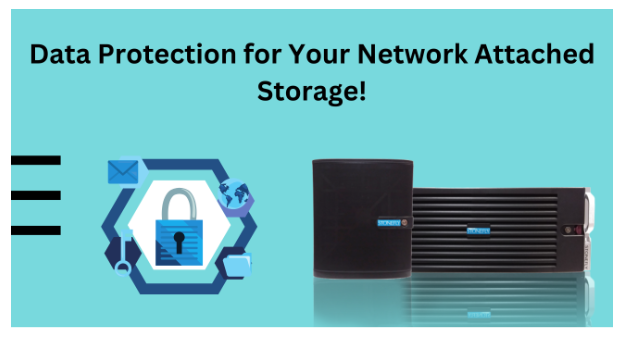As more and more businesses move to a digital-first approach, the importance of data protection grows. While there are many options for data protection, one of the most effective methods is to use a network-attached storage (NAS) appliance. A NAS appliance provides reliable, cost-effective storage for your business’s critical data.
What is a Network Attached Storage Appliance?
A NAS appliance is a physical device that connects to your network and provides storage for your digital files. NAS appliances come in a variety of sizes and can be purchased pre-configured or built your own. One of the biggest advantages of using a NAS appliance is that it can be configured to provide fault tolerance, meaning that if one disk fails, the others can continue to operate without interruption. This is important for businesses that cannot afford to have their data inaccessible even for a short period of time.
Another advantage of NAS appliances is that they can be used to create backups of your data. In the event of a system failure or ransomware attack, you can restore your data from the backup without having to pay the ransom. This makes NAS appliances an invaluable part of your data protection strategy.
Centralized Storage:
One of the biggest benefits of using a NAS is that it provides your business with centralized storage. This means that all of your data is stored in one central location which can make it easier to manage and protect. Having all of your data stored in one place can also help you save space and reduce costs.
Increased Security:
Another benefit of using a NAS is that it can help increase the security of your data. A NAS can offer you increased security by encrypting your data and providing you with password-protected access. Some NAS appliances also come with built-in firewalls and intrusion detection systems (IDS).
Easier Management:
Using a NAS can also make it easier to manage your data. With a NAS, you can create users and groups so that only certain people have access to specific files. You can also set up quotas so that users do not exceed their allotted storage space. Scalability:
A final benefit of using a NAS is that it offers scalability. This means that you can start small with just a few users and then scale up as your needs change. With a scalable NAS solution, you can add more disks and drives as needed without having to replace your entire system.
Getting Started with Network Attached Storage Appliances
If you’re thinking about using a NAS appliance for data protection, there are a few things you need to do to get started. First, you’ll need to purchase a NAS appliance that meets your needs in terms of capacity and features. Second, you’ll need to install and configure the appliance according to your specific requirements. Finally, you’ll need to create backups of your data and test them regularly to ensure that they are working as expected. By following these steps, you can be confident that your business’s critical data is well-protected.
There are three primary ways to protect your NAS device from data loss: redundant arrays, backup solutions, and disaster recovery solutions. Let’s take a closer look at each one.
Redundant Arrays
Redundant arrays are the most common method of protecting NAS devices from data loss. A redundant array is simply an array of multiple NAS devices that store the same data. If one NAS device fails, the others can pick up the slack and keep your data safe and accessible. Redundant arrays are typically used in conjunction with backup solutions for added protection.
Backup Solutions
Backup solutions come in many different forms, but they all serve the same purpose: to create duplicate copies of your data so that you can restore it in the event of a failure. The most common type of backup solution is an off-site backup, which stores your data on a separate server or cloud storage system. This way, even if your primary NAS device fails, you can still access your data from the backup location.
Disaster Recovery Solutions
Disaster recovery solutions are designed for situations where your entire. NAS system goes down due to a natural disaster or other catastrophic event. Disaster recovery solutions typically involve replicating your entire NAS system to a secondary location so that you can quickly restore operations after an outage.
Conclusion:
Network attached storage appliances are an effective way to protect your business’s critical data. They offer fault tolerance, ease of use, and the ability to create backups of your data. If you’re thinking about using a NAS appliance for data protection, follow the steps.
When it comes to choosing a data protection solution for your business, you should consider using a Network Attached Storage (NAS) appliance. A NAS offers many benefits including centralized storage, increased security, easier management and scalability. Choose a NAS appliance that meets the specific needs of your business in order to get the most out of this valuable solution.


